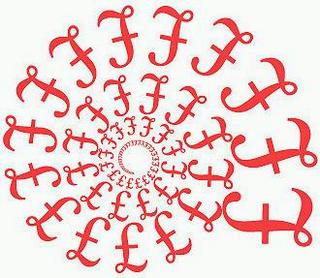Business leaders in Hungary are worried about the country's deteriorating investment climate
Published:
5 October 2003 y., Sunday
Business leaders in Hungary are worried about the country's deteriorating investment climate. Calls on the country's Central Bank to cut interest rates and on the government to curb state spending have so far gone unheeded.
All the Hungarians seem interested in is a major fraud and money-laundering scandal – and especially in the question: who's to blame?
The time when Hungary used to be a model scholar in the transition process to a free market economy has been over for some time. Recent governments - the last one (conservative) under Fidesz leader Viktor Orbán, and the incumbent (left-liberal) coalition led by Péter Medgyessy (no party affiliation) - seem caught up in inter-party squabbling rather than dealing with the necessary political and economic reforms prior to joining the European Union in May next year.
Central Bank governor Zsigmond Járai is becoming increasingly skeptical about the government's stated aim to join the euro zone by 2008. The Finance ministry is constantly coming up with economic growth predictions that have undergone downward adjustments – from 4 percent to 3 to 3.5, recently.
Last year's spring election, with its record turnout, demonstrated that a majority of Hungarians no longer supported Mr Orbán's us-Hungarians-we-are-the-greatest philosophy: by a slim majority voters preferred the alternative, a coalition of socialists and progressive liberals, led by the wealthy businessman-banker Mr Medgyessy.
Šaltinis:
rnw.nl
Copying, publishing, announcing any information from the News.lt portal without written permission of News.lt editorial office is prohibited.
The most popular articles
 “Banking Market in the Baltics 2009-2011, CEE Banking Brief” report recently presented by Intelace Research states that, despite the current economic recession, Estonia, Latvia and Lithuania are still among the most advanced banking markets in Central and Eastern Europe (CEE).
more »
“Banking Market in the Baltics 2009-2011, CEE Banking Brief” report recently presented by Intelace Research states that, despite the current economic recession, Estonia, Latvia and Lithuania are still among the most advanced banking markets in Central and Eastern Europe (CEE).
more »
 According to the unaudited data for three quarters 2009, AB Bank SNORAS earned LTL 4.1 million profit. Although the inter-banking market of the country fixed the banks’ asset decrease (- 4.6 per cent) since the beginning of the year, the assets of Bank SNORAS grew by LTL 249.3 million and were by 4 per cent higher than at the beginning of 2009.
more »
According to the unaudited data for three quarters 2009, AB Bank SNORAS earned LTL 4.1 million profit. Although the inter-banking market of the country fixed the banks’ asset decrease (- 4.6 per cent) since the beginning of the year, the assets of Bank SNORAS grew by LTL 249.3 million and were by 4 per cent higher than at the beginning of 2009.
more »
 Taking into account changes on domestic money markets AB DnB NORD Bankas, a member of international financial group shall change individual and corporate time deposit rates from November 5.
more »
Taking into account changes on domestic money markets AB DnB NORD Bankas, a member of international financial group shall change individual and corporate time deposit rates from November 5.
more »
 FL Technics, the leading aircraft maintenance, repair and overhaul (MRO) provider in Eastern Europe, has signed contracts with Air Italy and Air Slovakia for Boeing 737-300 aircraft base maintenance in Lithuania.
more »
FL Technics, the leading aircraft maintenance, repair and overhaul (MRO) provider in Eastern Europe, has signed contracts with Air Italy and Air Slovakia for Boeing 737-300 aircraft base maintenance in Lithuania.
more »
 Thales UK’s headquarters site in Weybridge has recently held a Halloween charity coffee morning, raising more than £280 for Marie Curie Cancer Care.
more »
Thales UK’s headquarters site in Weybridge has recently held a Halloween charity coffee morning, raising more than £280 for Marie Curie Cancer Care.
more »
 New SaaS-Based Vulnerability-Scanning Solution Is Latest Addition to Company’s Application Security Program.
more »
New SaaS-Based Vulnerability-Scanning Solution Is Latest Addition to Company’s Application Security Program.
more »
 Since 31 October 2009, only LTL 0.99 fee for accepting payments will be applied to clients while making payments for various services (utility fees, communication services, etc.) in all subdivisions of Bank SNORAS.
more »
Since 31 October 2009, only LTL 0.99 fee for accepting payments will be applied to clients while making payments for various services (utility fees, communication services, etc.) in all subdivisions of Bank SNORAS.
more »
 AB DnB NORD Bankas, the country‘s leader in investment products market, offers a new possibility for the clients to make repurchase deals (repo deals) in the bank’s newly installed on-line trading platform.
more »
AB DnB NORD Bankas, the country‘s leader in investment products market, offers a new possibility for the clients to make repurchase deals (repo deals) in the bank’s newly installed on-line trading platform.
more »
 The benefits of the integration of eastern Europe’s financial systems into the world economy outweigh the costs that have been highlighted during the global economic crisis, the EBRD has concluded in a new report.
more »
The benefits of the integration of eastern Europe’s financial systems into the world economy outweigh the costs that have been highlighted during the global economic crisis, the EBRD has concluded in a new report.
more »
 On 22 October 2009, following the favourable opinion expressed in September by the Committee for Fisheries and Aquaculture, the Commission adopted a Regulation establishing the implementing rules for the 2008 Regulation to prevent, deter and eliminate illegal, unreported and unregulated (IUU) fishing.
more »
On 22 October 2009, following the favourable opinion expressed in September by the Committee for Fisheries and Aquaculture, the Commission adopted a Regulation establishing the implementing rules for the 2008 Regulation to prevent, deter and eliminate illegal, unreported and unregulated (IUU) fishing.
more »